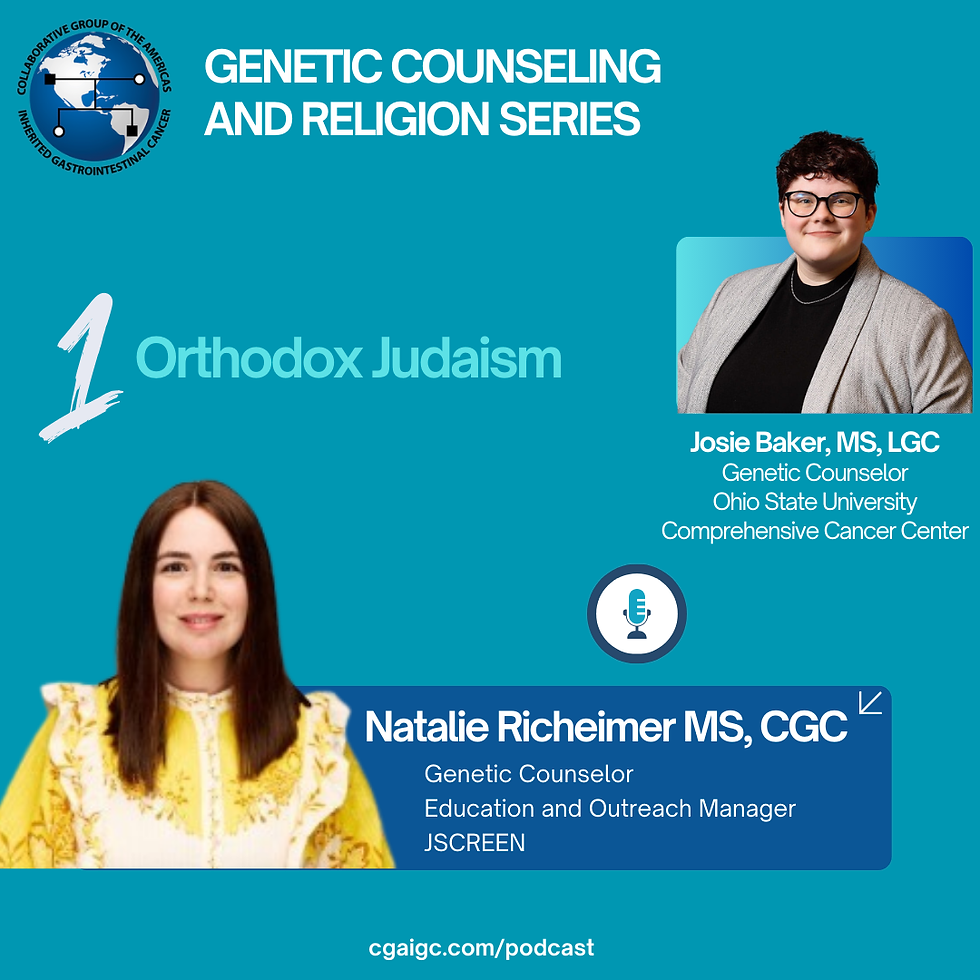PD-1 Blockade in Mismatch Repair Deficient, Locally Advanced Rectal Cancer
- CGA-IGC
- Dec 8, 2022
- 1 min read
Charles Muller, MD
Chair, CGA-IGC Communications Committee

Does PDL-1 blockade therapy allow for non-operative management of MMR deficient locally advanced rectal cancer?
“I’m obviously a big advocate of this approach, but I realize that it’s challenging because it is not yet standard of care” – Andrea Cercek, MD, Memorial Sloan Kettering Cancer Center.
This episode, hosted by Matt Yurgelun, MD from Dana Farber Cancer Center in Boston, MA features Zsofia Stadler, MD & Andrea Cercek, MD, both medical oncologists at Memorial Sloan Kettering Cancer in New York, NY who are co-authors of the recent blockbuster study “PD-1 Blockake in mistmatch-repair deficient, locally advanced rectal cancer” in the New England Journal of Medicine, which can be found here.
They discuss how they sought to determine if dMMR rectal cancers, which respond well to immune checkpoint inhibitor therapy and poorly to conventional neoadjuvant chemotherapy, could be treated with a total neoadjuvant approach with curative intent and avoid surgery. In this prospective phase 2 study, in which 12 patients were treated with 6 months of dostarlimab, all 12 had complete tumor response without need for chemoradiotherapy or surgery with no serious adverse effects. Most patients in the study had Lynch syndrome.
This current study is accruing more patients with additional recruitment of patients with other dMMR cancers, such as esophageal cancer or cholangiocarcinoma to determine if a non-operative approach can be employed for other malignancies with surgical morbidity.

If you enjoyed this podcast, you may like others in our Journal Club podcast series (Seasons 3, 4 &5) presented by the CGA-IGC Education Committee.
Or explore our Expert Approach to Hereditary Gastrointestinal Cancers podcast series (Seasons 1 and 2).
We're also on Spotify!




Comments